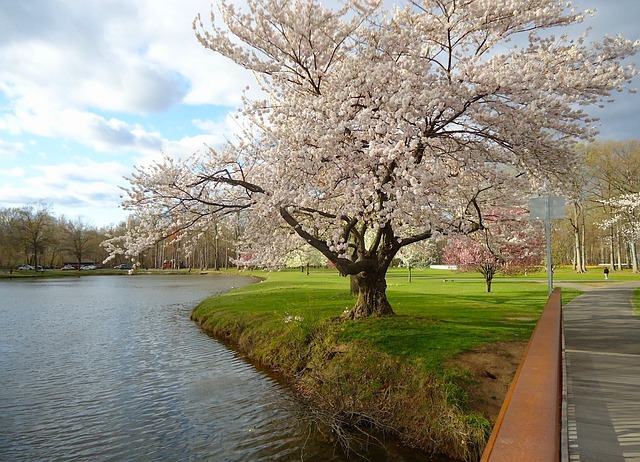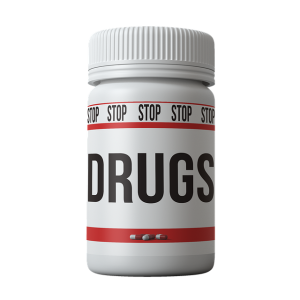Thriving in Recovery: New Jersey’s Sober Living Environments and Rehabilitation Success Rates
New Jersey offers robust drug rehab programs that are highly regarded for their comprehensive and personalized care. These programs incorporate evidence-based practices and innovative therapies, with professionals skilled in addiction medicine ensuring q…….

New Jersey offers robust drug rehab programs that are highly regarded for their comprehensive and personalized care. These programs incorporate evidence-based practices and innovative therapies, with professionals skilled in addiction medicine ensuring quality treatment. After completing a rehabilitation program, individuals can transition to sober living environments where they experience a structured, substance-free life while learning to navigate society independently. These homes provide a framework for recovery that includes peer support, community involvement, and access to continuous care through regular house meetings, drug testing, and connections with local rehab programs. The state's regulatory standards ensure safe and effective sober living communities, often located near drug rehab centers to facilitate ongoing support. New Jersey's aftercare system, including its sober living homes, plays a crucial role in the recovery journey by offering a seamless transition from intensive rehabilitation to sustained sobriety, with a focus on personal growth and societal reintegration. The state's approach to recovery is holistic, combining structured living with community support, which has led to high success rates for individuals seeking long-term recovery solutions in the context of drug rehab New Jersey services.
1. Sober living environments in New Jersey offer structured, supportive communities for individuals transitioning from addiction treatment programs to independent living. These environments provide a framework that fosters recovery through peer support and life skills training.
2. Opting for drug rehab in New Jersey presents advantages over other states, with a robust network of facilities and tailored recovery programs that cater to diverse needs and backgrounds. The state’s resources are designed to address the complexities of addiction, ensuring comprehensive care.
3. Effective sober living homes in New Jersey share common traits: they offer safe housing, enforce strict drug and alcohol policies, provide access to recovery services, and encourage active participation in community activities. These characteristics create a conducive atmosphere for long-term sobriety.
4. Transitioning from a drug rehab program to a sober living environment in New Jersey is a critical step in the recovery journey. It involves developing a personalized plan that aligns with one’s therapeutic goals and promotes sustained abstinence from substance use.
5. In New Jersey, support groups and community play a pivotal role within sober living communities, offering networks of understanding and mutual encouragement. These social connections contribute to a person’s resilience against relapse triggers.
6. A look into the best sober living environments in New Jersey reveals their success rates, which are often high due to the state’s comprehensive approach to addiction treatment and recovery. Prospective residents can explore these programs to find one that aligns with their recovery aspirations.
- What Are Sober Living Environments in New Jersey?
- Benefits of Choosing Drug Rehab in New Jersey Over Other States
- Key Characteristics of Effective Sober Living Homes in NJ
- How to Transition from Drug Rehab to a Sober Living Environment in New Jersey
- The Role of Support Groups and Community in NJ Sober Living Communities
- Exploring the Best Sober Living Environments and Their Success Rates in New Jersey
What Are Sober Living Environments in New Jersey?

In New Jersey, sober living environments serve as a transitional space for individuals who are recovering from substance use disorders. These communities offer structured, safe housing where residents can continue their journey of sobriety in a supportive and drug-free setting. The philosophy behind these environments is to facilitate a return to society by providing recovery tools, peer support, and life skills training that help maintain abstinence from alcohol and drugs. Residents are expected to adhere to a code of conduct that promotes personal responsibility, community engagement, and a commitment to their recovery. These homes often have house meetings, random drug testing, and encourage active participation in drug rehab programs in New Jersey, such as outpatient treatment or 12-step fellowships. They are designed to bridge the gap between intensive rehabilitation and fully independent living, ensuring individuals have a strong support network as they navigate their new sober lifestyle. The state of New Jersey boasts a variety of these homes, each with its own unique approach, but all aimed at providing a stable, recover-focused environment that can be the foundation for long-term sobriety and personal growth.
The significance of sober living environments in New Jersey cannot be overstated, as they represent a critical component of the state’s broader recovery ecosystem. These environments are not just a roof over one’s head but a community that upholds the principles of recovery. They are often located near drug rehab centers in New Jersey, enabling residents to access ongoing treatment and aftercare services with ease. The proximity to these resources ensures that individuals have immediate support when facing challenges or temptations, making it a crucial step for those committed to maintaining their sobriety and building a life free from substance abuse. With the state’s commitment to providing comprehensive addiction care, sober living environments in New Jersey stand out as effective and compassionate havens for recovery.
Benefits of Choosing Drug Rehab in New Jersey Over Other States

New Jersey offers a multitude of advantages for individuals seeking drug rehab services, making it a compelling choice over other states. The state boasts a range of comprehensive treatment programs that are tailored to address the unique needs of each patient. These programs often incorporate evidence-based practices and cutting-edge therapies, which are delivered by highly qualified professionals with expertise in addiction medicine. New Jersey’s drug rehab facilities are renowned for their individualized approach, which considers the psychological, emotional, and social aspects of substance use disorders.
Furthermore, New Jersey provides a supportive recovery environment characterized by its robust network of aftercare programs and sober living communities. This network ensures continuity of care as individuals transition from intensive treatment to more independent living arrangements. The state’s commitment to recovery is evident in the availability of resources and community support groups that facilitate long-term sobriety. New Jersey’s strategic location along the East Coast also offers easy access to a variety of leisure activities, which can be integral to maintaining a healthy and balanced lifestyle post-rehabilitation. Drug rehab in New Jersey is distinguished by its holistic and comprehensive approach, making it an excellent option for those looking to embark on a journey toward recovery.
Key Characteristics of Effective Sober Living Homes in NJ

In New Jersey, sober living environments play a pivotal role in supporting individuals in recovery from substance use disorders. Effective sober living homes share several key characteristics that contribute to their efficacy, creating a structured and supportive transition for residents post-drug rehab in New Jersey. Firstly, these homes provide a stable, alcohol-free, and drug-free living space where residents can focus on their recovery without the distractions of substances. They offer a strong sense of community, fostering mutual support among peers who understand the challenges of recovery. This peer support is often complemented by structured routines that include chores, responsibilities, and curfews, which help residents develop responsibility and time management skills.
Moreover, successful sober living homes in New Jersey are staffed by individuals who are experienced in addiction recovery, offering guidance, counseling, and a wealth of resources to address the physical, emotional, and psychological aspects of recovery. They emphasize ongoing drug rehab aftercare planning, ensuring that residents have access to continued treatment and support services. These homes also implement regular drug testing to maintain accountability and ensure a safe environment for all residents. Additionally, they provide access to various therapeutic activities, including group meetings, educational workshops, and opportunities for vocational training, which are crucial for long-term recovery and reintegration into society. Through these comprehensive approaches, sober living homes in New Jersey offer a pathway to sustained sobriety and a healthier, more productive life for individuals seeking recovery from drug addiction.
How to Transition from Drug Rehab to a Sober Living Environment in New Jersey

Transitioning from a structured drug rehab program in New Jersey to a sober living environment can be a pivotal step for individuals seeking long-term recovery. It’s crucial to choose a transitional program that aligns with one’s personal needs and the level of support required post-rehabilitation. Many drug rehab centers in New Jersey offer continuums of care that include access to sober living homes as part of their aftercare planning. These environments provide a semi-independent setting where residents can apply the coping strategies and skills acquired during rehab while acclimating to life without the influence of substances.
In New Jersey, sober living homes are regulated and offer structured routines that include house meetings, chores, and curfews, which help maintain accountability and responsibility. They also provide a supportive network of peers who understand the challenges of early recovery. Residents benefit from ongoing support and can often access nearby 12-step groups or other therapeutic resources. This combination of structure, community, and continued treatment opportunities is designed to facilitate a smoother transition from the intensive care of rehab to a more autonomous lifestyle, enhancing the likelihood of sustained sobriety. When considering a sober living environment in New Jersey, it’s important to research accredited homes that adhere to state regulations, ensuring a safe and supportive recovery journey.
The Role of Support Groups and Community in NJ Sober Living Communities

In New Jersey, sober living environments play a pivotal role in supporting individuals who are transitioning from structured drug rehab programs to more independent lifestyles. These communities provide a framework where recovery is fostered through shared experiences and mutual support. A key component of these environments is the integration of support groups such as Alcoholics Anonymous (AA) and Narcotics Anonymous (NA), which offer structured, peer-led meetings that encourage accountability and fellowship. These groups not only offer a sense of community but also provide a network of individuals who understand the challenges faced during recovery. The proximity of New Jersey’s sober living homes to these support group resources ensures that residents have easy access to ongoing support and can actively participate in group activities, which reinforces their commitment to sobber living. This continuum of care from drug rehab New Jersey facilities to sober living environments is designed to create a seamless transition for individuals to maintain their sobriety while navigating the complexities of daily life. The community aspect within these sober living homes extends beyond support groups, as residents often engage in group outings, educational workshops, and social events that emphasize healthy, substance-free interactions. This holistic approach not only promotes long-term recovery but also empowers individuals to rebuild their lives with a supportive network that prioritizes sobriety and personal growth.
Exploring the Best Sober Living Environments and Their Success Rates in New Jersey

In New Jersey, the landscape of recovery is marked by a robust network of sober living environments that play a pivotal role in the journey of individuals transitioning from drug rehab programs to independent living. These environments are designed to provide structured and supportive settings that facilitate sustained sobriety. The state boasts a variety of reputable sober living homes, each offering unique programs tailored to meet the diverse needs of recovering addicts. These facilities often collaborate with local drug rehab New Jersey centers to ensure a seamless continuum of care, which is instrumental in achieving high success rates. Residents benefit from a combination of peer support, accountability measures, and access to community resources that encourage a healthy and substance-free lifestyle. The success of these environments is often measured by the longevity of sobriety among residents, their reintegration into society, and their ability to maintain gainful employment and meaningful relationships.
The success rates of sober living environments in New Jersey are noteworthy, with many residents reporting long-term recovery and improved quality of life. These outcomes are attributed to the state’s stringent regulations for sober living homes, which mandate high standards of care and ensure that the environments remain safe and conducive to healing. Additionally, the proximity to drug rehab New Jersey facilities allows for ongoing support and treatment as needed, reinforcing the recovery process. The combination of structured living, evidence-based practices, and a supportive community creates an environment where individuals can thrive in their sobriety, making New Jersey a leading state in providing robust recovery solutions post-rehabilitation.
In New Jersey, sober living environments serve as vital stepping stones for individuals on their recovery journey. These settings, distinguished by their supportive structures and community-centered approach, offer a continuum of care following drug rehab programs. The Garden State’s commitment to providing robust and effective sober living homes is evidenced by their structured environment, active support networks, and proven success rates, making it a compelling choice for recovery over other states. Prospective residents considering drug rehab in New Jersey can rest assured that the state’s comprehensive approach to sobriety not only addresses immediate needs but also fosters long-term stability and well-being. As the benefits of these environments become increasingly recognized, New Jersey continues to set a commendable standard for recovery nationwide.









